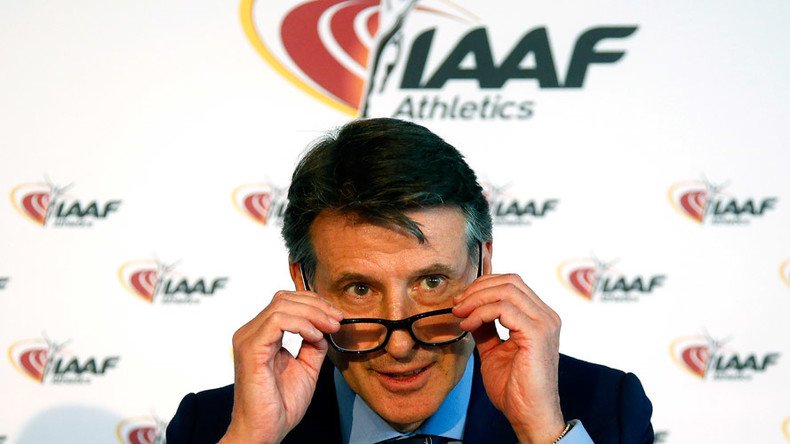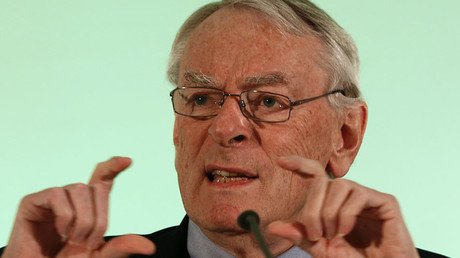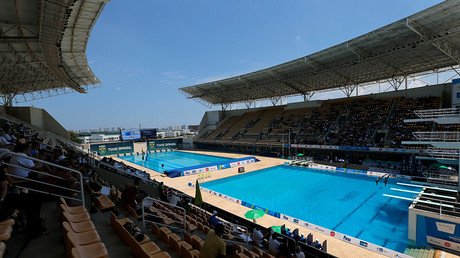IAAF not ready to readmit Russian athletes, decision on Rio Olympics to be made in May

The head of world athletics’ governing body says Russia is not yet ready to be reinstated for the 2016 Olympic Games in Rio de Janeiro, but says the Russian Athletics Federation has time at least until May to fix its doping problems.
Lord Sebastian Coe, the head of the International Association of Athletics Federations (IAAF), said, “While progress has been made, the council unanimously agreed that the Russian authorities need to undertake further significant work to satisfy the reinstatement conditions,” adding that “RUSAF [the Russian Athletics Federation] should not be reinstated to membership of the IAAF at this stage. The task force will report at the next council meeting.”
The announcement was made yesterday at the end of a two-day council meeting of the body in Monaco, where officials examined the efforts of the Russian Athletics Federation to reform its anti-doping system.
Lord Coe said that the IAAF needs more time to investigate Russian anti-doping progress, and that the governing body will hold another council meeting on an unspecified date in May, when it plans to reach a final decision on whether Russia will be readmitted in time for the 2016 Summer Olympics in Rio de Janeiro, Brazil, in August.
Mikhail Butov, Russia’s track federation secretary general serving on the IAAF council, accepted the decision, noting Russia still has time to fulfill the conditions outlined: “They [the IAAF] said that we need to take yet more steps to satisfy all the demands,” he told Russian news agency TASS. “There is still time to resolve the issues with the IAAF and the IOC [International Olympic Committee]. I think we have enough strength for that. There are things to work out and there’s a path to achieving our goal. We will work.”
Meanwhile, the Russian sports minister, Vitaly Mutko, told Reuters on Friday that Russian athletes will not be able to compete at the 2016 Rio Olympic Games if the ban on their participation is not lifted by mid-July: “If we are talking about the point of no return, it is after July 20 when the Russian Olympic Committee should confirm its team.” However, Mutko also pointed out that he did not see any serious obstacles preventing the Russian Athletics Federation from regaining its membership in the IAAF in May: “I see no impassable obstacles that would prevent this issue from being settled in May. This is not such a difficult subject.”
Russian athletes were suspended following the publication of an independent World Anti-Doping Agency (WADA) report that examined allegations of doping, cover-ups, and extortion in Russian athletics.
The IAAF now says Russia’s first job must be to address the culture of doping.
Rune Andersen, a former director of WADA who is leading the IAAF taskforce and presented the report on Russia’s progress to the body on Friday, noted that the task the country faces is not straightforward, but stressed that Russia’s sports authorities have made notable progress so far: “Russian authorities have made significant progress to meeting many of the verification criteria established by the IAAF, including changing president and council. Some of the verification criteria still needs significant work, including interviewing athletes and coaches who have had anti-doping reported against them. That's not an easy task and might take, as the sports minister in Russia indicated, years to do. It's a big job and they're just at the beginning of this.”
The IAAF also identified five countries apart from Russia which need to pay urgent attention to the state of their drug-testing systems, including Ukraine, Belarus, and Kenya – which Lord Coe pointed to as countries which “need to get compliant by the end of the year.”
He also said that Ethiopia and Morocco need to establish a more sensible testing program. Despite having drawn the attention of the IAAF, these countries currently face no sanctions and are not in any immediate danger of being banned from athletics or missing the Olympics.














